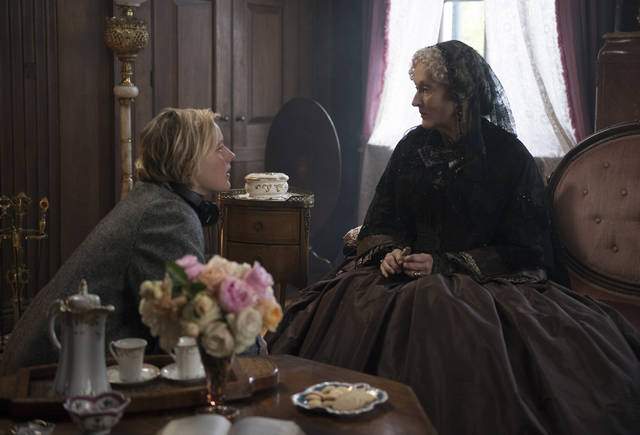https://development.triblive.com/opinion/lori-falce-little-women-and-boys-who-dont-read/
Lori Falce: ‘Little Women’ and boys who don’t read

I am an equal opportunity story lover. I love books and movies and television shows that are a chocolate box of options.
I like rom-coms and chick lit and sweeping Jane Austen-esque tales of love and duty and sacrifice. I love action movies and comic book heroes. I embrace science fiction in all its forms and epic tales of otherworldly fantasy. I can sink into mystery like a hot bath and wrap myself in a fluffy blanket of drama.
And I’ve never felt a need to confine myself to stories about women just because I happen to be a woman.
That’s the kind of thing that girls who love to read tend to learn young, because you often had to be content with the girls you could find in a good story.
You could read about Tom Sawyer and Huck Finn and they had spectacular adventures that you willingly undertook — even if you could only see yourself reflected in the flat dimensions of Becky Thatcher, Mark Twain’s equivalent of Charlie Brown’s unattainable “little red-haired girl.”
But you knew that while you were encouraged, sometimes even required, to read boys’ stories, that wasn’t reciprocated.
The boys knew nothing of orphan girls being raised on Canadian islands or living in the attic of a boarding school. They didn’t understand how a story of westward expansion could be about sun bonnets instead of cowboy hats. And maybe we underestimated them, because for years, there has been a puzzle. How do we get boys to read?
A Scholastic survey in 2016 showed boys don’t read for fun the way girls will, and data from the U.S. National Assessment of Educational Progress shows boys are half as likely to be advanced readers. Maybe it’s because girls are shown a library and told to read everything and boys are told they can read anything that isn’t pink-washed.
That’s not the only problem, though. While boys read less, the stories that are pushed onto movie and television screens are often done with them in mind, even though young women are 15 percent more likely to go to the movies, according to an industry study. Even when a woman’s story is told, a man’s is more likely to be lauded.
There is a lot of frustration over the 2020 Oscars shutout of critically acclaimed “Little Women” director Greta Gerwig from the Best Director race, where five men who made undeniably good movies will compete for the prize.
The movie was nominated for Best Picture, and not everyone gets nominated for everything. Oscars shouldn’t be participation trophies, but it’s startling that in 91 years, only one woman has received the Oscar for Best Director — Kathryn Bigelow — and that was for telling what most would say was a man’s story (“The Hurt Locker”).
Maybe if we could stop tagging one movie as a women’s film and another for men, this book for girls and that one for boys, we could all start just appreciating the stories for what they are — small chances to live a moment outside of ourselves, opening our imagination and feeding our creativity.
That’s something we should all have an equal opportunity to do.
Copyright ©2026— Trib Total Media, LLC (TribLIVE.com)
